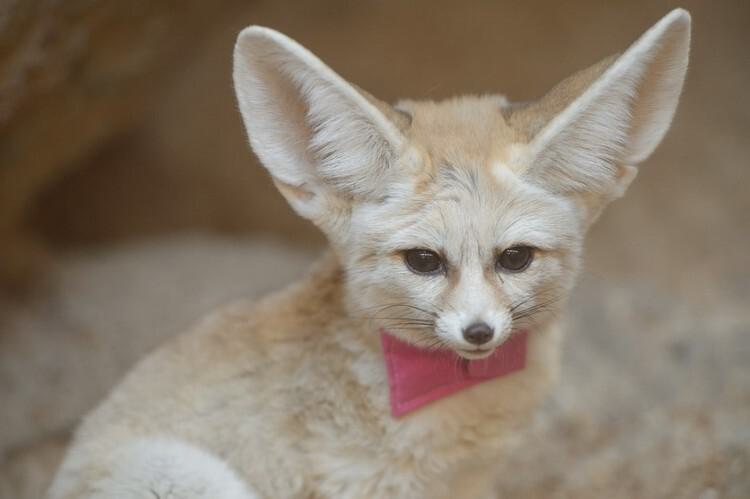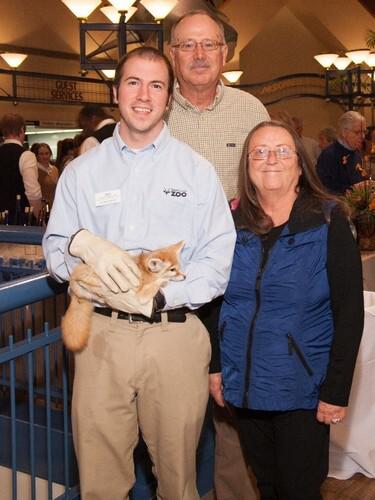
Have you ever visited the Zoo and enjoyed a close-up encounter with an animal? If so, you likely interacted with one of the Zoo’s many animal ambassadors. Animal ambassadors are individual animals that help educate the public about their species. Currently, the Saint Louis Zoo does not have these animals interacting with guests. But previously, many species have served as zoo ambassadors, and one of the most popular was the fennec fox, a small fox with long ears and a friendly disposition. Zoo educators utilized fennec foxes to inform visitors about climate change and desert adaptations, and these foxes helped inspire guests to take action in protecting wildlife.

Zoos have long known that up-close guest interactions with ambassador animals can increase learning about the natural world and help develop positive attitudes about animals and conservation. But, while the benefits of engaging guests with ambassador animals are well established, there is still more to learn about how ambassador programs impact the animals themselves. To address this question, scientists at the Zoo received funding from the Association of Zoos and Aquariums Conservation Grants Fund to determine if fennec foxes participating in ambassador programs showed differences in activity patterns, hormone production, or personality traits. Zoo staff were particularly interested in whether fennec foxes, which are considered nocturnal, would show changes in activity if they participated in programs during the day, similar to a person working a night shift.
We collected data from 36 fennec foxes at three institutions, including the Saint Louis Zoo. Foxes were each fitted with a Fitbit One© activity monitor which was worn in a collar around the foxes necks. Similar to the Fitbits that many people wear to measure movement, these devices are used to measure activity in zoo animals.

Zoo staff also collected fecal samples to measure cortisol, a hormone associated with activity, metabolism and sometimes stress. Finally, we assessed the personality of fennec foxes in zoos. Like people, animals can show noticeable differences in personality, from bold to shy, or confident to cautious. We wanted to know whether certain traits might be more common in foxes that routinely interact with zoo staff and guests.
We found that ambassador foxes, like other zoo foxes, were most active around midnight. There was no evidence that ambassador foxes were active earlier in the day, as we had expected, since programs take place during the morning and afternoon.

The Zoo also found that levels of cortisol were comparable among zoo foxes, but that personality traits differed. Foxes that participated in ambassador programs were more likely to be described as playful, confident, and friendly in comparison to other foxes in our study. This could mean that animals that participate in ambassador programs become more approachable to humans.
Educating our community about wildlife and motivating guests to preserve the natural world are goals of the Zoo. Our results confirm that fennec foxes can serve as ambassadors to help meet these goals without disrupting their normal activity patterns or increasing their stress. This information is invaluable, as it confirms that we can engage our guests with these charismatic animals while meeting our foxes’ behavioral and psychological needs.
This study was conducted before the Zoo’s ambassador programs were put on hold. More details about the Zoo’s study can be found here.

